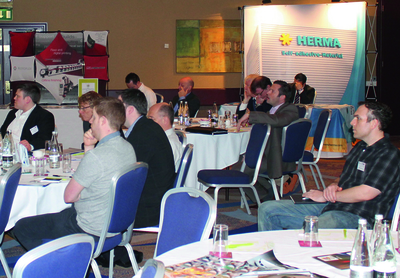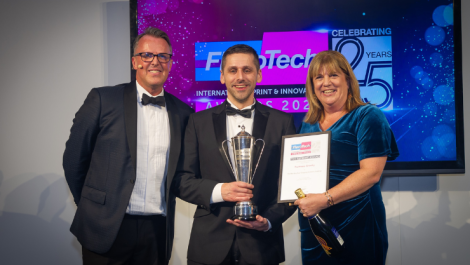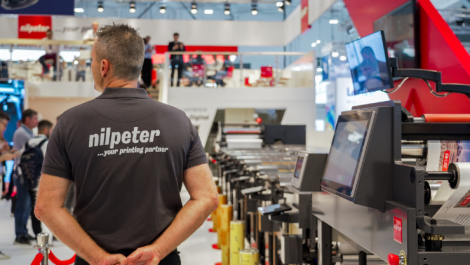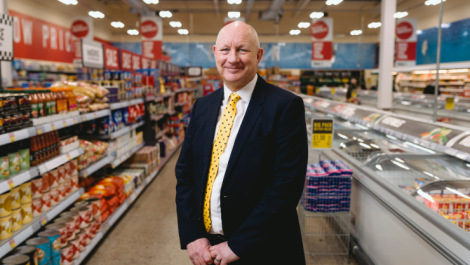During the last couple of years, the technical seminars held by the labels section of the BPIF have become a firm fixture in the industry calendar. This spring has been particularly busy with two events, the first of which focused on maximising productivity and reducing waste. By Neel Madsen.
Supported byFlexoTech, the seminar was held on 2 April in Daventry and brought together suppliers and printers under the theme of sustainability. A wide range of speakers examined all areas of the production chain discussing how printers can maximise their productivity, and in turn, profitability by reducing waste and eliminating those bottlenecks that slow down operations.
Topics included high definition printing and reduced gamut printing, maintenance of anilox rollers and UV systems, next generation narrow web presses, management information systems, and waste handling through vacuum extraction systems.
Process improvement
During two separate presentations, Jean-Paul Wheater, senior process improvement engineer at Vision in Print (ViP), looked at the state of the industry in terms of productivity and gave an overview of the current set of tools available to managers to improve this.
Outlining the challenges face by the industry, he spoke about how ViP can help companies through training and process improvement, and by upskilling people and training staff. He said, ‘The industry has seen a 10% dip in turnover since the peak in 2009 and a 19% drop in number of employees since 2006 while raw materials prices have risen significantly. This has made it a real challenge to maintain profit, so we have had to become more productive.’
He advocated lean manufacturing and greater cooperation between departments in companies, saying that team manager and leaders often don’t have time to look at the overall picture because they are too busy managing the day-to-day running of the company. ViP offers a consultancy service where their experts go into companies to perform a comprehensive ‘health check’ which will help improve agility across all departments and maximise the potential in delivering customer value.
In his second presentation, Mr Wheater spoke about the current set of tools available for managers in order to improve productivity. These include lean manufacturing, Six Sigma, the 5Cs, Kaizen or rapid improvement processes, amongst many others. He said that it is important to get the measures right, define the areas for improvement, review routines and equipment effectiveness, and understand where your staff’s energy lies in order to implement standardisation, eliminate waste and creating the right culture in the organisation.
Hidden costs
Schneider-Electric is a global specialist in energy management and works closely with the BPIF. Looking at managing energy costs and how these can be reduced, David Hunter, head of strategic alliances, said that the current crisis in Ukraine is of concern to Europe as 10-15% of total EU gas supply transits via the Ukraine and in total 25-30% of the EU’s gas supply is sourced from Russia.
Mr Hunter also spoke about issues with energy brokers; the vast majority of brokers charge a hidden commission, and a recent survey has shown that 77% of the 504 business asked either didn’t know what they were being charged or assumed it was a free service. According to the Citizens Advice Bureau 42% of mis-selling complaints from small businesses between November 2011 and October 2012 contained references to broker behaviour across the board.
The company offers flexible energy contracts and can help companies budget their costs and improve sustainability.
Recycling update
A vociferous advocate for recycling, BPIF labels project Zero to Landfill, which has been set up together with waste management company Prismm, is now actively used by several label printers, including The Labels Makers, PPL Labels, Stampiton, CCL Labels, Chesapeake and Reflex Group.
Jon Hutton from Prismm said that approximately 200,000 tonnes of label waste is landfilled each year in the UK and that this material can be recovered and used as an energy. There are still logistically and pricing challenges to overcome, as well as a change in attitude towards environmental responsibilities needed, but the situation is improving and with more printers coming onboard the project is gaining momentum. As Mr Hutton said, ‘There is a long way to go, but we are turning a corner.’






